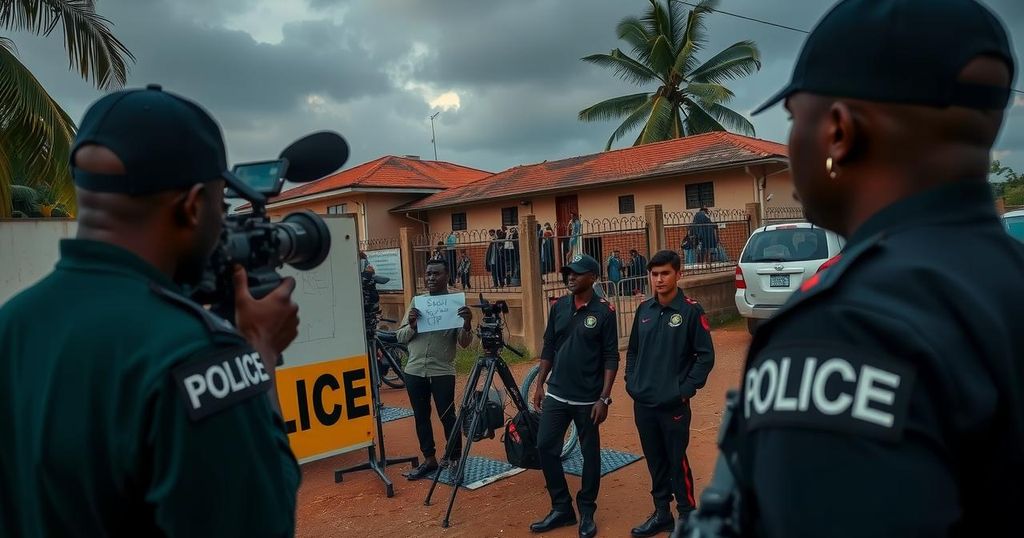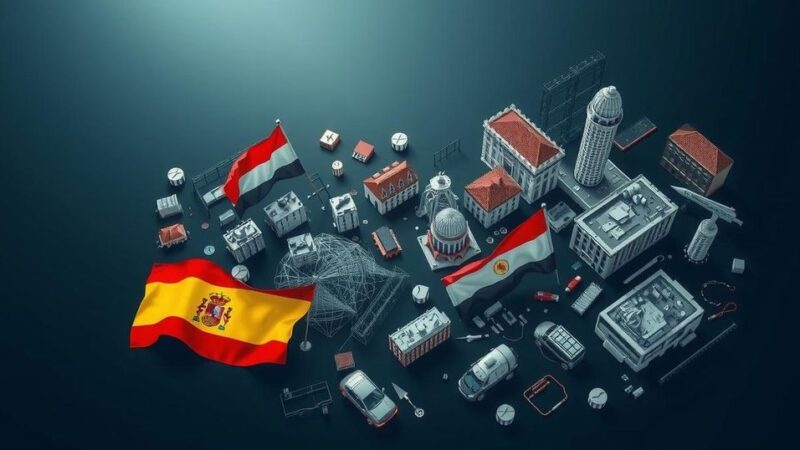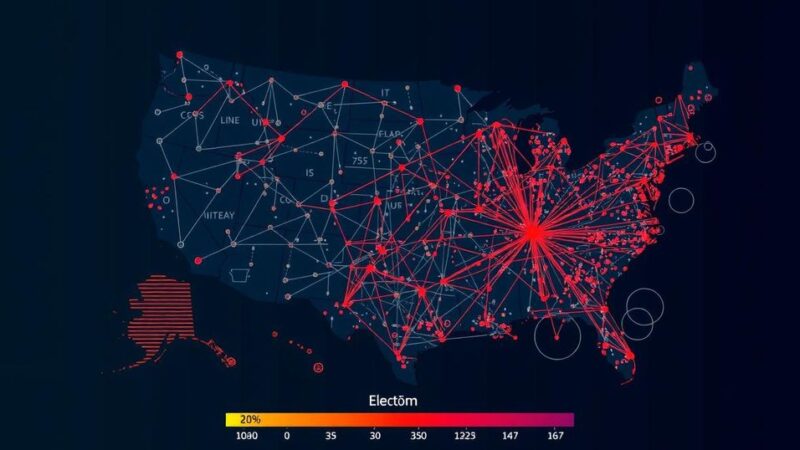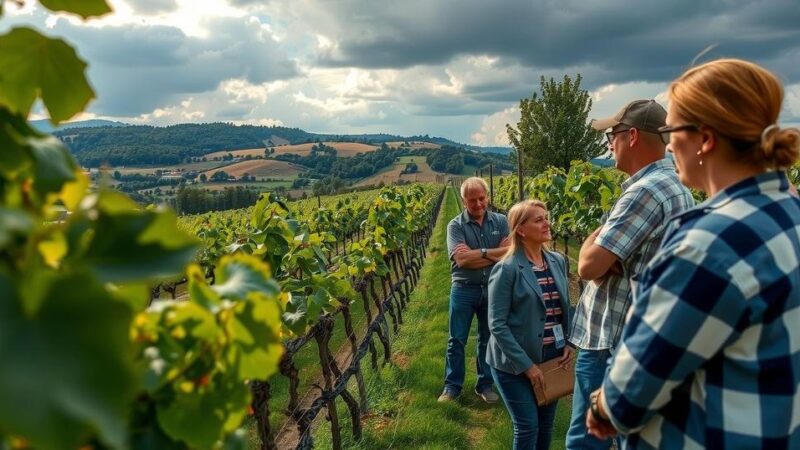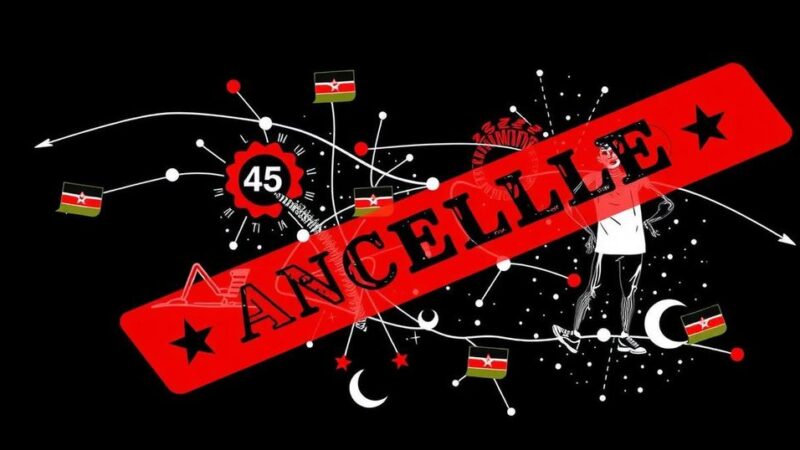In the lead-up to the elections scheduled for November 2, Guinea-Bissau’s media faces financial and ethical pressures, raising concerns regarding press independence. The government has imposed steep licensing fees on media organizations, exacerbating their financial struggles. Multiple incidences of violence against journalists highlight a deteriorating environment for free speech amid political unrest and threats from organized crime. While international organizations attempt to provide support, local media outlets struggle to maintain autonomy and integrity in their reporting.
In Guinea-Bissau, the countdown to the elections on November 2 has triggered significant preparation among politicians and journalists for a competitive campaign. As the electoral season intensifies, media organizations are faced with logistical and ethical dilemmas. Many are drafting proposals for international partnerships, particularly seeking assistance from the United Nations Development Program (UNDP) to cover expenses related to transportation, food, lodging, and communication. This reliance on external funding stems from the financial constraints that local media outlets face, which often leads to compromised journalistic integrity through acceptance of funds from political entities. The UNDP has previously provided financial support to several media platforms, including various radio stations and newspapers, with amounts approximately $2,500 during the 2023 parliamentary elections. The organization is also involved in promoting civic education alongside the National Elections Commission, which collaborates with media houses. However, persistent attempts by the Union of Journalists and Media Technicians for further backing from international agencies have been unsuccessful. Compounding these issues is the oppressive presence of organized crime and drug trafficking in Guinea-Bissau. President Umaro Sissoco Embalo’s recent termination of the opposition-led parliament has further strained the political landscape, bringing social challenges such as rising living costs and limited access to healthcare and education to the forefront of voters’ concerns. Additionally, the government has imposed exorbitant licensing fees on private media organizations, demanding $5,000 for broadcast permits, which many struggling outlets cannot afford prior to elections. In reaction, the Forum of Private Media Organizations has proposed a reduced fee structure that aims to promote compliance while acknowledging the vital role of community radio. The government remains silent on this counterproposal, heightening concerns about press freedom. Guinea-Bissau’s political system has been characterized by deep-seated corruption and conflicts between the presidential office and parliament, with allegations of high-level drug-related corruption featuring prominently. Reports from organizations such as Freedom House shed light on these issues and document incidents of violence against the media, including attacks on journalists and threats that instigate a climate of fear. Furthermore, private radio stations have faced shutdowns due to licensing disputes, often resolved only with civil society intervention. Despite assurances from the president to support legal compliance among media professionals, there exists a noticeable gap between policy promises and the practical reality, where journalists continue to experience intimidation and obstruction. Notably, there has been documented aggression towards media personnel, as exemplified by an incident involving the detainment of a photojournalist by security forces. The situation for journalists in Guinea-Bissau continues to deteriorate, prompting calls from international observers for greater respect for media freedoms and fundamental rights within the nation.
The political landscape of Guinea-Bissau has faced immense turmoil, characterized by governmental instability, corruption, and media suppression. The upcoming elections in November represent a critical juncture for the nation’s democratic processes. The financial limitations of local media organizations often compel them to seek external funding, risking their impartiality. Furthermore, challenges posed by drug trafficking and strong-arm tactics against the media have created a hostile environment for journalists, hindering their ability to report freely. Organizations such as Freedom House and the UNDP have been active in providing some support, yet the severe financial and logistical challenges remain significant barriers to independent and effective journalism.
In conclusion, the media landscape in Guinea-Bissau is marred by significant challenges as the country approaches its elections. Systematic corruption and external pressures from both the government and organized crime undermine journalistic integrity. The financial dependence of media outlets on political entities poses risks to impartial reporting, while governmental demands for exorbitant licensing fees threaten to further encumber the press. As observers point out, the space for free expression is confined, leaving a troubling outlook for both journalists and the citizens depending on their reporting for vital information during this crucial electoral period.
Original Source: www.voanews.com
